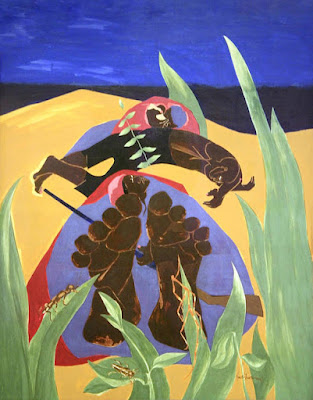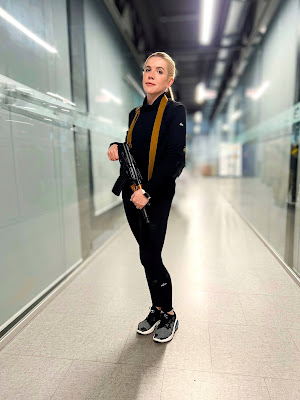by Jay Sizemore
Pearly whites. Teeth. Not teeth.
Privilege.
$50,000 to kill a black man.
In the safari grassland of Zimbabwe,
a man with white skin, white teeth, white erectile dysfunction,
draws back his bow. He knows the dark has no soul.
It’s only an animal.
The grass ripples in waves, flashing between shades
of brown and yellow and green.
His arrow strikes true, bowstring vibrato hum,
the familiar inhuman cry.
The rifle to finish the job. A bullet through the heart,
the animal heart.
Careful to get no blood on his khakis.
Poses for photographs with his trophy,
his prized fetish, fresh frothy crimson, foaming
from its mouth. He’ll cut off its head, mount it on his wall,
maybe make its black skin into a rug.
Just another dead thing to stand on.
Blue lights. Blue shirts. Blue eyes.
Privilege.
The lion doesn’t have a license plate.
The lion doesn’t have a license.
Lions shouldn’t be driving, their primal instinct
is to kill, to gnaw marrow from healthy bones.
Question the lion. These things don’t speak English.
The lion will grunt and growl, avoid eye contact,
that dead yellow stare,
that scent of bloody breath.
This is why he carries a handgun.
This is why he’s trained his trigger hand.
The lion has no pride, it’s been drinking gin,
dribbled it down its beautiful black mane.
Old car animal sweat, fight or flight.
It’ll reach for its keys.
Tell the lion to stop.
It’ll reach under the seat.
Don’t think twice.
Shoot the lion in the head.
No one will riot.
Jay Sizemore doesn’t win awards. Founder of Crow Hollow Books, he writes poems and stories and scribbles his name a lot onto electronic pads for material possessions. He listens to Ryan Adams and drinks Four Roses. You can find his work online in places if you go looking, including his chapbook Confessions of a Porn Addict, available on Amazon. His wife puts up with his shit in Nashville, TN.









